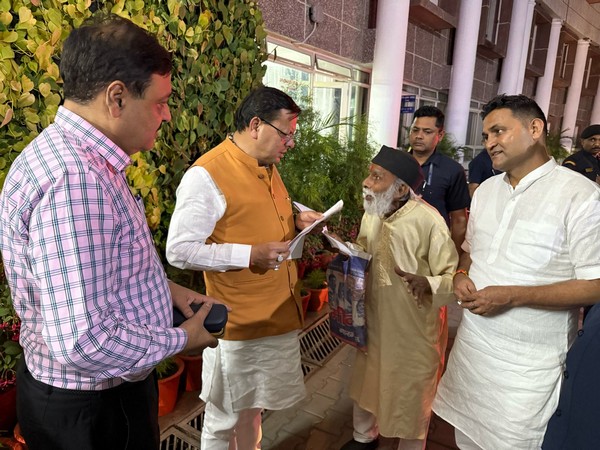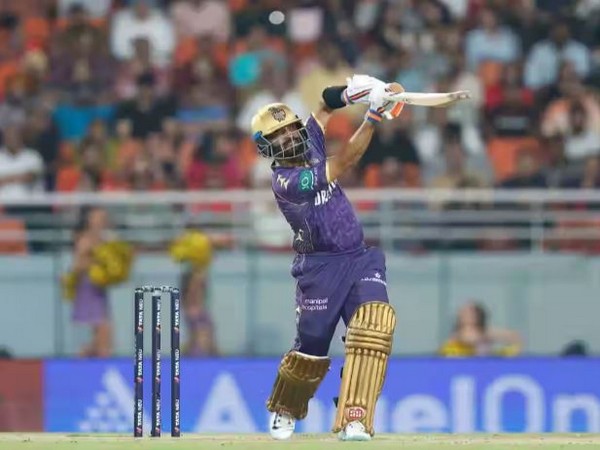NGT directs Delhi govt to pay Rs 2,232 cr compensation for improper waste management
Feb 17, 2023

New Delhi [India], February 17 : In view of improper waste management, the National Green Tribunal (NGT) has directed the Delhi government to pay Rs 2,232 crore as environmental compensation.
The bench headed by Chairperson Justice Adarsh Kumar Goel said that compliance with environmental norms on waste management has to be a high priority. It is high time that the union territory of Delhi realised its duty to the law and citizens.
After perusing the report filed by the Chief Secretary, the bench observed there were gaps in the management of solid and liquid waste in the national capital.
"On the pattern of compensation awarded in respect of other states (at the rate of Rs 2 crore per million litres per day (MLD) of untreated sewage and Rs 300 per tonne of untreated legacy waste), compensation of Rs 3,132 crore is liable to be levied on the Delhi government -- Rs 990 crore for solid waste and Rs 2,142 crore for liquid waste," the bench said in an order passed on February 16.
The bench has deducted the compensation for solid waste already levied (Rs 900 crore). The remaining amount of Rs 2,232 crore Delhi government has to pay on the "polluter pays" principle, the bench said.
The bench said that the amount of compensation has to be used for tackling the "emergent situation prevailing in Delhi, posing danger to the safety of the citizens," apart from continuing damage to the environment which cannot be ignored.
The bench said that this payment will be the responsibility of the chief secretary, Delhi and the payment be made within one month and credited to a separate ring-fenced account.
In October 2022, NGT directed the Delhi government to pay Rs 900 crore as environmental compensation. The city government had filed a review petition against the order.
The bench disposed of it through separate orders and the earlier amount of Rs 900 crore now to be paid with the additional amount of Rs 2,232 crore.
"Total amount liable to be paid is Rs 3,132 crores," the bench said.
As already observed, it will also be open to the State to plan to raise of requisite funds from generators/contributors of waste or by any other legal means, the bench said.
In the light of above, the bench said it was in the view that in the given situation when an emergent situation remains untackled after monitoring at the level of Hon'ble Supreme Court for 18 years and at the level of this Tribunal for the last nine years, monitoring should now be at the highest level of Administration in Delhi with the inclusion of all other concerned authorities including Delhi Government, Municipal Corporation, Delhi Development Authority (DDA) with strong monitoring mechanism envisaging weekly review with defined targets and accountability on the pattern of Yamuna Monitoring Committee.
Such monitoring mechanism had to be on the pattern of the Yamuna monitoring Committee, envisaging weekly reviews with defined targets and accountability, the tribunal said.
The bench also constituted a solid waste monitoring Committee to be headed by the Lieutenant Governor of Delhi.
Other members of the Committee would include the Chief Secretary, secretaries of various Delhi Government and union government ministries, Vice Chairman, DDA, Director General of Forest, Chairman of the central pollution control board (CPCB), Commissioner, Municipal Corporation of Delhi and jurisdictional District Magistrates and deputy commissioners of police, it said.
"The committee will deal with all issues relating to solid waste management including setting up of new waste processing facilities, augmenting existing waste processing facilities and remediation of legacy waste sites," the bench said.
The bench also said, "We also find that sanctity and significance of natural storm water drain need to be maintained."
Storm water drains, if left unpolluted, can be a source of drinking water for humans, birds, animals or aquatic life and the discharge of sewage or even treated water which is not of the standard of drinking water, seriously affects such drinking water resources adversely affecting their health. They are not to serve as sewage carriers, the bench said
The bench noted that out of 530 million gallons per day (MGD) of treated sewage, 267 MGD was being returned to the river Yamuna, the tribunal said that the treated sewage had to meet the water quality requirement of the river.
"There is a need to enhance capacity for utilising treated water. The high-level committee to monitor the rejuvenation of Yamuna may explore the possibility of hiring bulk users so that treated effluents can be utilised," it said.
"As already observed, there is a need for planning to prevent sewage (treated or untreated) entering the potable water resources, " the bench said
In relation to existing STPs, the bench said that it is seen that the utilised capacity of sewage treatment plants (STPs) of 632 MGD capacity is only 530 MGD and standards of water quality are not always met. This aspect needs to be looked into on a continuous basis by a centralised mechanism which may be set up preferably within a month.

















